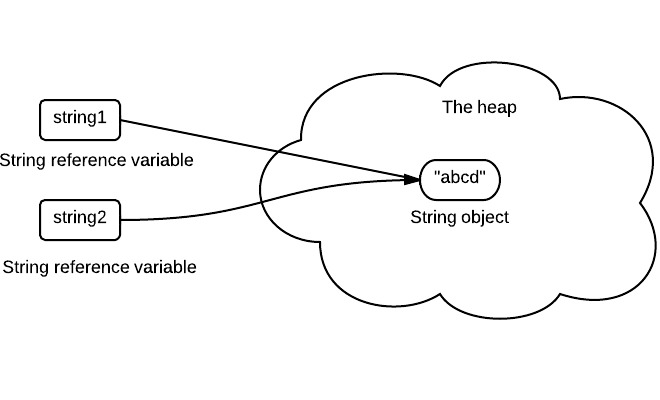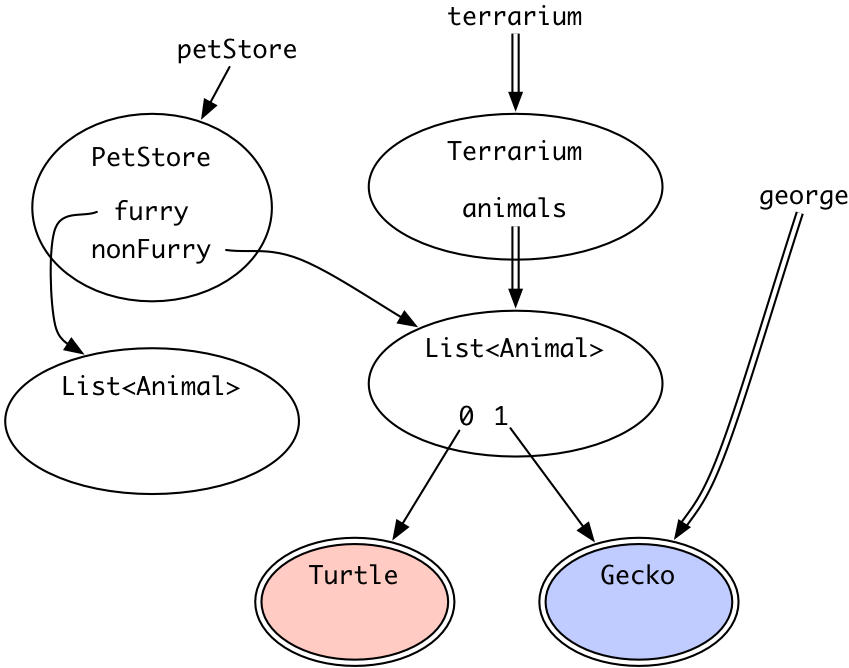Why Are Strings Immutable in Java? Key Reasons and Advantages Explained
Why Are Strings Immutable in Java? Key Reasons and Advantages Explained
Blog Article
What Is Unalterable Strings and Just How It Works
In the realm of programs, comprehending the concept of unalterable strings is vital for developing safe and robust applications. Unalterable strings refer to strings that can not be altered after they are produced, making certain information stability and predictability within the code. This essential principle plays a critical duty in various programming languages and offers a special technique to taking care of data. By checking out the ins and outs of exactly how immutable strings work, one can discover a globe of benefits and possibilities that can raise the top quality and efficiency of software application growth.
The Essentials of Unalterable Strings
Immutable strings, as a basic concept in shows, are character series that can not be changed as soon as they are produced. This suggests that as soon as a string is designated a worth, that value can not be modified. In languages like Python and Java, strings are unalterable things, resulting in numerous ramifications in regards to memory management and data honesty.
One of the key benefits of unalterable strings is that they offer a feeling of safety and security in information control. Since the content of an immutable string can not be customized, it ensures that the initial information continues to be intact, reducing the threat of unintended modifications during program implementation (Why are strings immutable in Java?). This residential or commercial property additionally streamlines debugging procedures, as developers can rely on that once a string is specified, its worth will not be accidentally modified
When a new string is developed based on an existing one, instead than changing the initial string, the brand-new worth is saved separately. On the whole, recognizing the basics of immutable strings is essential for grasping programming principles and optimizing code effectiveness.
Benefits of Immutable Strings
Structure upon the safety and effectiveness benefits of unalterable strings, their advantages include enhancing code integrity and simplifying simultaneous programs tasks. By being unalterable, strings can not be changed after creation, which gets rid of the risk of unintended adjustments in the data they store. This integral immutability ensures that when a string is developed, its value remains constant throughout the program's execution, minimizing the chances of bugs brought on by unanticipated modifications.
Additionally, immutable strings add to code reliability by making it less complicated to reason regarding the state of a program. Because strings can not be altered, developers can trust that a string will certainly constantly hold the exact same value, streamlining debugging and maintenance efforts. This predictability results in more trustworthy and steady codebases.

Execution in Shows Languages
Within various programs languages, the consolidation of immutable strings is an essential aspect that affects exactly how information is taken care of and controlled within code structures. The execution of unalterable strings differs throughout different shows languages, with each language offering its own systems to sustain this idea.

On the other hand, languages like C and C++ do not have integrated assistance for unalterable strings. Designers in these languages should by hand implement immutability by enforcing rules within their code to stop direct alterations to string things.
Finest Practices for Dealing With Immutable Strings
When dealing with unalterable strings in programs languages like Java and Python, sticking to best techniques makes sure safe and secure and effective data manipulation. Among the essential ideal practices is to make use of StringBuilder or StringBuffer as opposed to straight controling strings, specifically when handling comprehensive concatenation procedures. These courses pop over here provide mutable choices for string adjustment, helping to avoid unneeded memory allotments and boosting efficiency.
Additionally, when functioning with delicate information such as passwords or API secrets, it is vital to prevent keeping them as ordinary text in immutable strings. Utilizing protected storage devices like char arrays or specialized libraries for handling sensitive details aids alleviate safety and security dangers associated with immutable strings.
Real-world Applications and Instances
Discovering practical executions of unalterable strings in numerous industries exposes their considerable influence on data honesty and system reliability. In the health care market, immutable strings play a vital function in ensuring the safety and discretion of client information. By avoiding unauthorized adjustments to delicate info such as clinical documents and prescriptions, immutable strings assist keep conformity with strict privacy policies like HIPAA.
Monetary establishments likewise profit from the immutable nature of strings to boost the safety and security of consumer data and transaction documents. Immutable strings assist prevent fraudulence and unapproved alterations to monetary info, offering a robust protection versus cyber hazards and making certain the trust and confidence of clients.

Conclusion
To conclude, immutable strings are fixed and stable series of characters that supply benefits check this such as string safety and security and enhanced performance in shows. They are applied in various shows languages to make sure information honesty and safety. Best methods for working with immutable strings consist of preventing her latest blog direct adjustments and making use of techniques that return new string objects. Real-world applications of immutable strings include information encryption, caching, and string manipulation tasks.
Unalterable strings refer to strings that can not be changed after they are created, making certain information integrity and predictability within the code. When a new string is created based on an existing one, rather than changing the initial string, the brand-new worth is stored separately.In languages like Java and Python, strings are unalterable by default, indicating that when a string object is produced, its worth can not be altered - Why are strings immutable in Java?. Ideal methods for working with unalterable strings include avoiding straight adjustments and utilizing techniques that return new string things. Real-world applications of immutable strings consist of data security, caching, and string adjustment tasks
Report this page